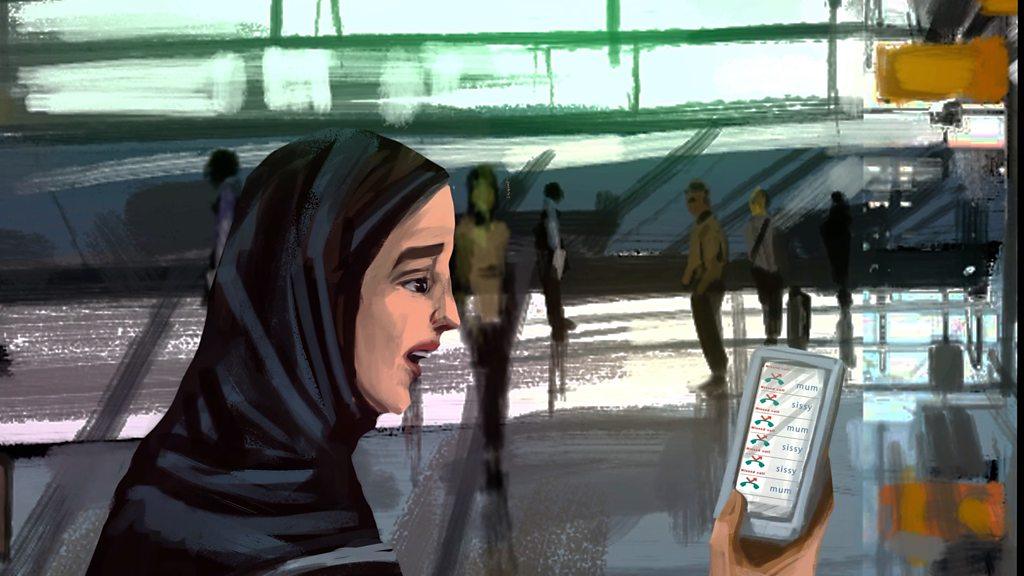Concern over Queen's University's Saudi partnership
- Published
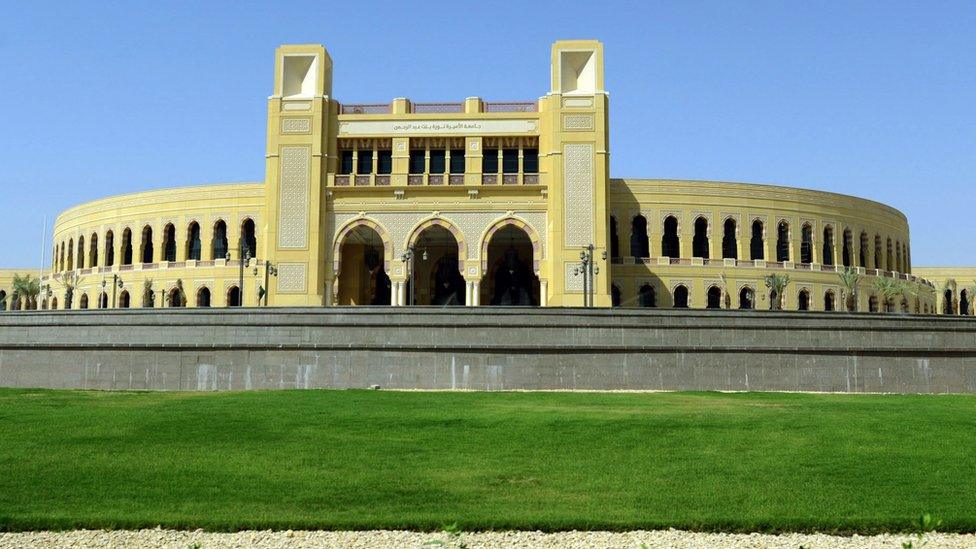
Princess Nourah Bint Abdulraham University is the largest women-only university in the world with about 60,000 students
Concerns have been raised over Queen's University's plans to enter a partnership with a Saudi Arabian university.
The move will see a number of Queen's academics provide training to staff at Princess Nourah Bint Abdulraham University (PNU).
Based in Riyadh, it is the largest women-only university in the world with about 60,000 students.
However, Amnesty International has said that Queen's has questions to answer.
Its Northern Ireland director, Patrick Corrigan, said that Saudi Arabia had an appalling human rights record, including cracking down on women's rights.
Queen's has been in discussions with PNU for more than a year about the agreement, which is aimed at staff and postgraduates there.
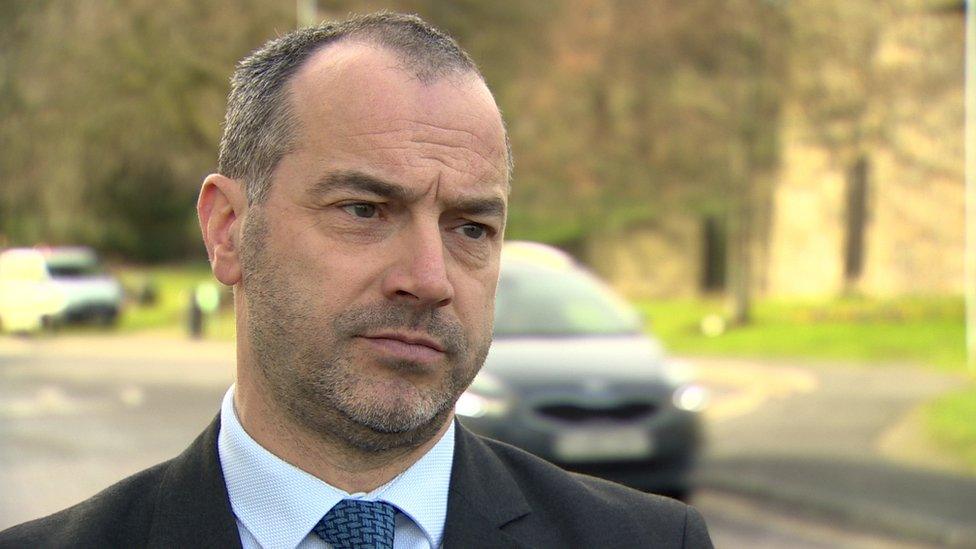
Patrick Corrigan said there were human rights issues and reputational issues at play for Queen's
In a statement to BBC News NI, Queen's said that it engaged with a range of partners across the world.
"Queen's rigorously evaluates and reviews all potential and existing partnerships on an ongoing basis to ensure they reflect the university's commitment to having a positive impact on global society," a spokesperson said.
"The programme would involve five Queen's academics providing training to help participants prepare for the next stage in their academic career and progress to leadership positions in the Kingdom of Saudi Arabia.
"The university believes that this potential partnership would help to support the progression of women in the Kingdom of Saudi Arabia and therefore have a positive societal impact, with the possibility of a number of students from PNU enrolling at Queen's in the future."
Queen's is not the only university in the UK or Ireland to pursue formal links with institutions in Saudi Arabia.
Dublin City University, for example, already has a partnership with PNU in the delivery of some qualifications.
However, Mr Corrigan said that there were questions for Queen's over their proposed partnership.
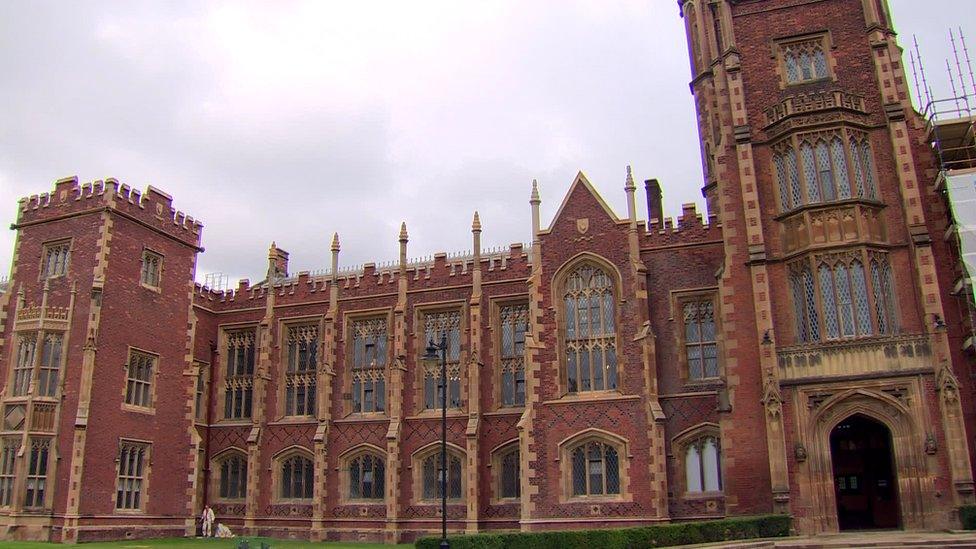
Queen's said it believes the partnership would help to support the progression of women in Saudi Arabia
"We're talking about a government which indiscriminately bombs civilian targets in Yemen, imprisons and tortures human rights activists at home and indeed apparently has murdered a journalist within its own consulate," he said.
"So there are severe human rights issues and reputational issues at play for Queen's."
The journalist Jamal Khasoggi was killed after entering the Saudi consulate in Istanbul in October.
Saudi officials insist he was murdered by a "rogue" team of agents who were not acting on the orders of the country's rulers.
Women's rights in Saudi Arabia have also come under the international spotlight.
There has been some progress in recent years with women being allowed to drive for the first time in 2018, but other restrictions remain.
Student rules on PNU's website state that women cannot leave the university without official permission.
They are also warn about "non-commitment to general taste in dress or demeanour (short skirts, transparent clothes, short, men-like haircuts, and earrings in strange places) in a manner that does not comply to Islamic instructions, Saudi culture and PNU instructions".
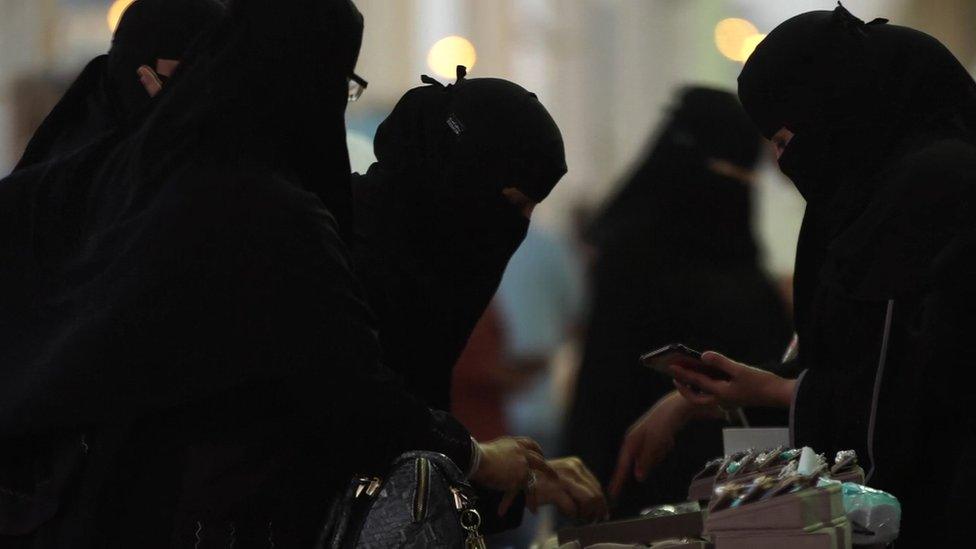
Women's rights in Saudi Arabia have also come under the international spotlight
Some of the other rules, however, are similar to those in universities in Northern Ireland.
Mr Corrigan said he was doubtful about claims of change in Saudi Arabia.
"We need to be wary of this idea that there are winds of change blowing through Saudi Arabia, and playing into the hands of a government which is still brutally repressing and silencing its critics," he said.
"That includes academics who have spoken out for women's human rights issues within the country.
"I think Queen's needs to be wary of not providing cover or white-washing the human rights violations by the host government of its new relationship with a Saudi university."
- Published7 February 2019

- Published30 January 2019
